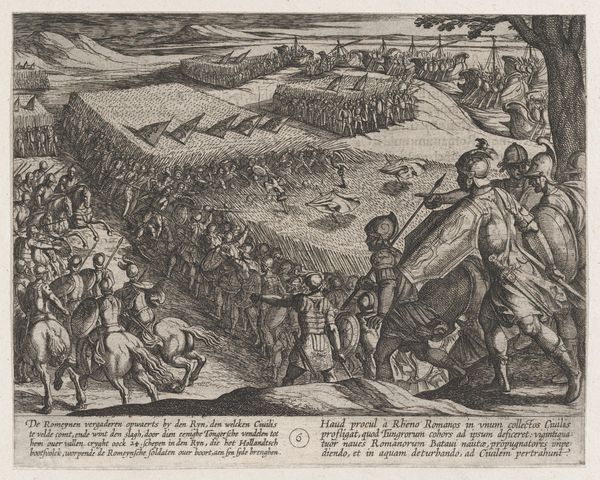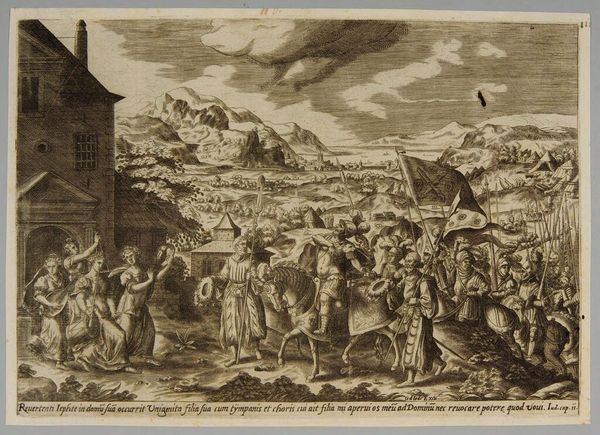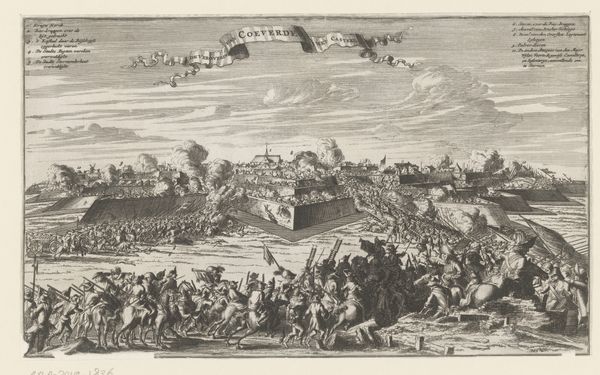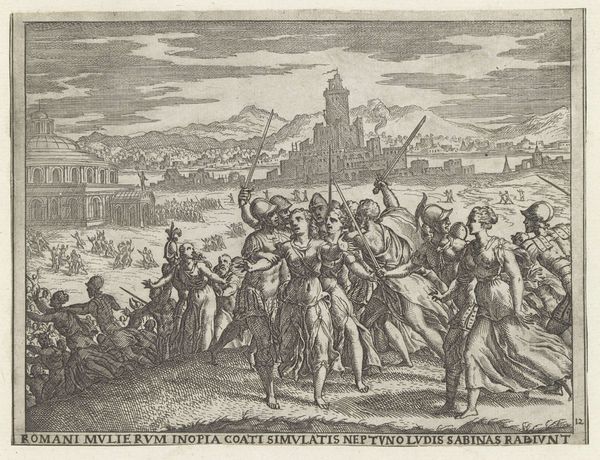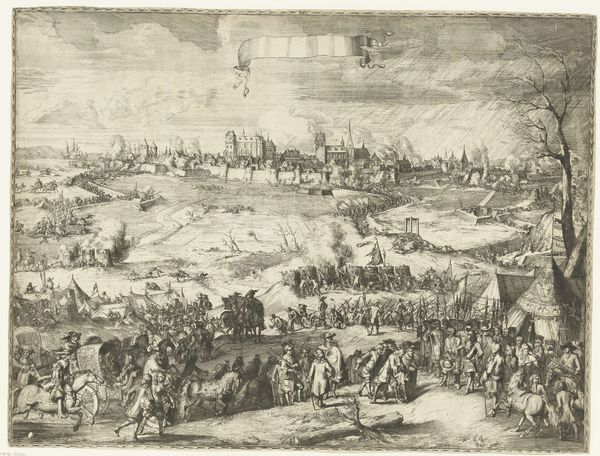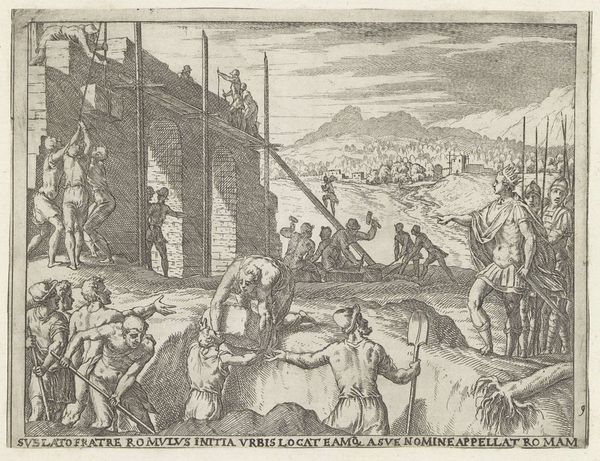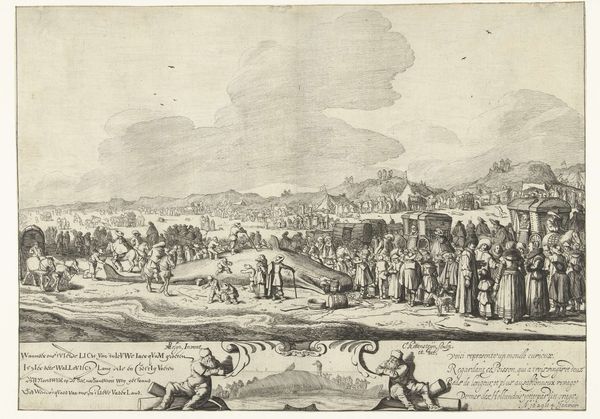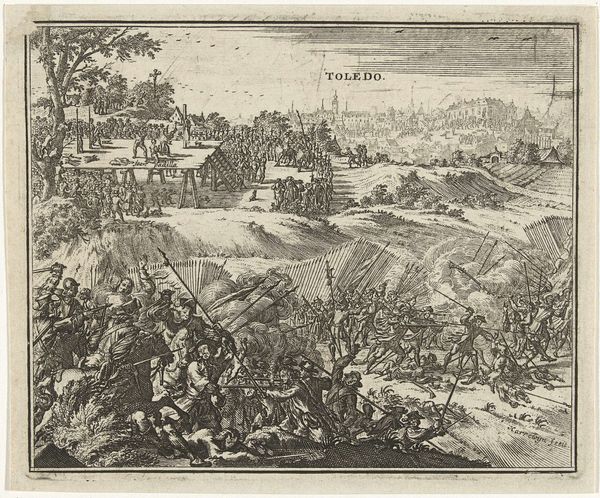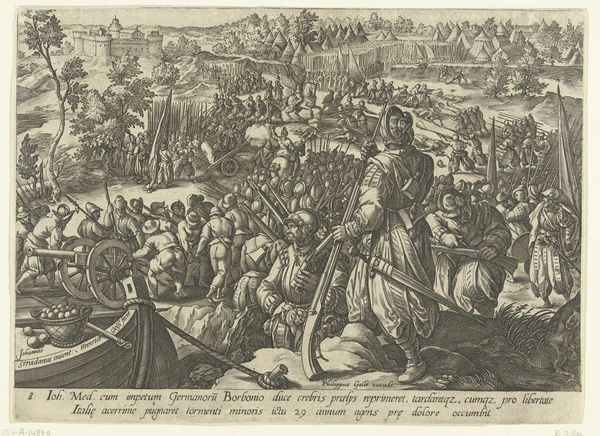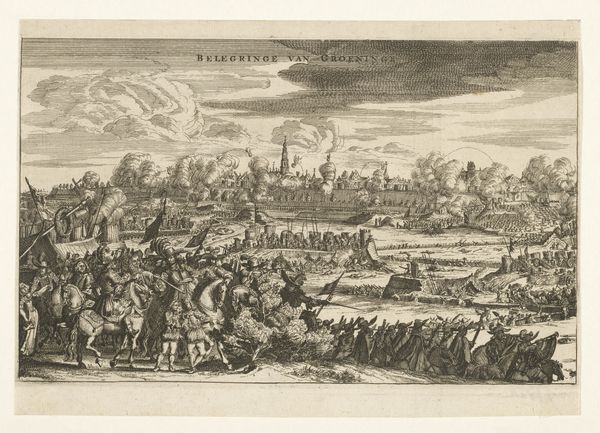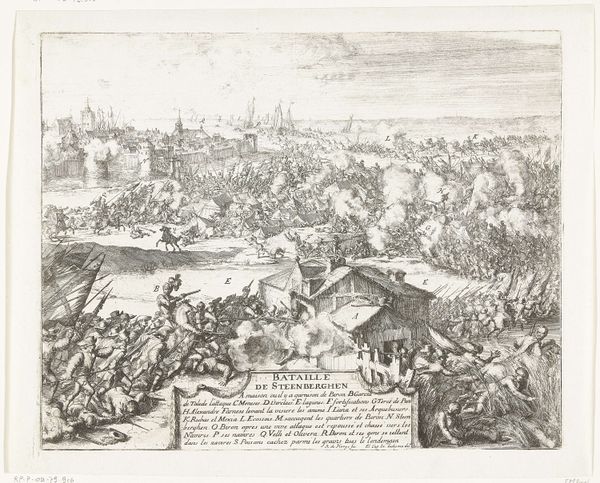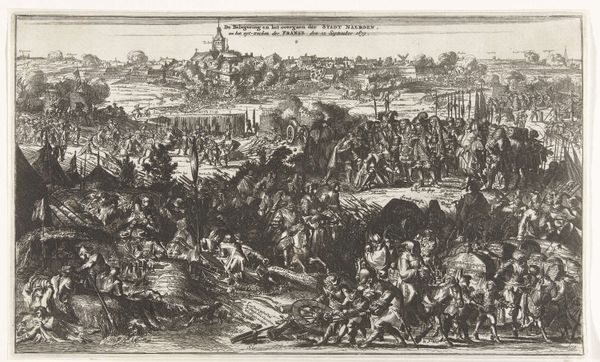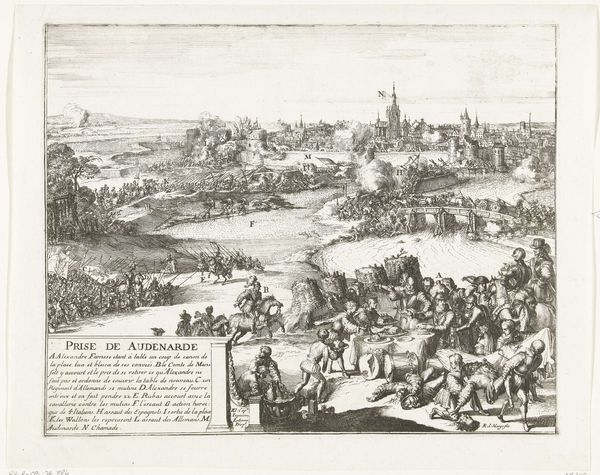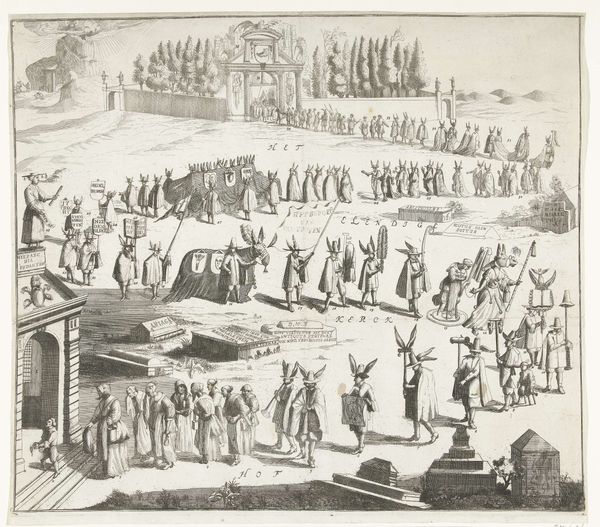
print, intaglio, engraving
#
narrative-art
#
baroque
#
pen drawing
#
dutch-golden-age
# print
#
intaglio
#
landscape
#
figuration
#
line
#
history-painting
#
engraving
Dimensions: height 223 mm, width 327 mm
Copyright: Rijks Museum: Open Domain
Curator: Well, isn’t this lively! My first thought: organised chaos. It’s a seething mass of tiny figures and geometrical shapes... almost overwhelming at first glance. Editor: This engraving is called "Romeinen verslagen bij de Rijn, 69-70," which translates to "Romans Defeated at the Rhine, 69-70". Joseph Mulder created it sometime between 1682 and 1684. Curator: Mulder...yes, very much of the period in terms of the intense detail! But why recreate the past through something so... regimented? I mean, all those perfectly placed lines of soldiers; it’s as though he is interested in patterns. Editor: Think about the context: The Dutch Golden Age was obsessed with its past victories, particularly against formidable empires like Rome. Mulder's engraving functions as a powerful form of nationalistic propaganda. The "organised chaos" that you perceived represents a decisive triumph over an invading power. Curator: Propaganda, huh? Still, you can feel the tension and maybe even sense a little national pride from his rendering of those ancient victories along the Rhine. Look at how they charge fearlessly on horseback, a display of heroism amidst that sea of people. It almost hides the true carnage of warfare, replacing the violence of a moment in time with calculated displays of victory! Editor: I think your insight is spot on. I wonder whether viewers saw in these prints visual justifications for contemporary colonial actions, connecting their 17th century exploits with a heroic past in which their ancestors resisted the great Roman Empire! Mulder, after all, made a deliberate aesthetic choice that blends artistic expression and political messaging. Curator: Hmm, well when viewed that way it almost feels like Mulder captured the zeitgeist and laid it perfectly here. The tension, pride and propaganda do certainly leave you with something to think about, don’t they? Editor: Indeed. Art becomes such a wonderful resource in deciphering the complexities of history when you step back to view its production!
Comments
No comments
Be the first to comment and join the conversation on the ultimate creative platform.
